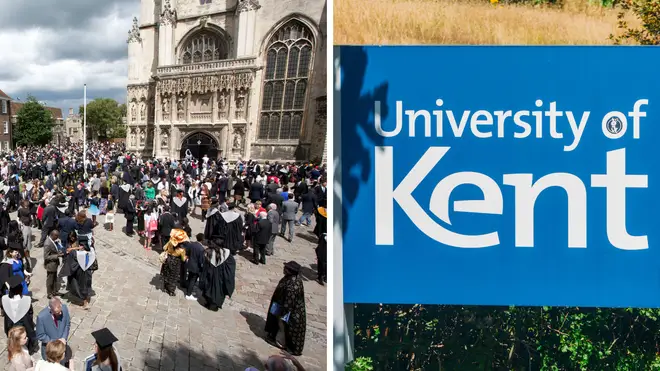
Matthew Wright 7am - 10am
16 February 2023, 09:48

A top university has been criticised for asking students not to use the terms 'Christian name', 'last name' or 'surname' because they could cause offence.
The University of Kent told students to "avoid using Christian-centric terms, not only on [the] ground[s] of respect but also for practical reasons," in the 'inclusive language' section of the diversity, equality and inclusion page of its website.
University bosses add that "surname is not unacceptable" as a term.
"However, this word may originate from sire-name, or the name derived from one’s father," which means students should also avoid it.
Meanwhile "the term ‘last name’ should not be used as it could be confusing to Asian groups who place their family name first," the guide cautions students.

Instead, students should use the term 'family name' as a neutral replacement.
The university has not banned these words, which are a guideline only.
But Tim Dieppe, the head of public policy for Christian Concern, an evangelical pressure group, said that the institution was "displaying an irrational fear of using the term "Christian" as if it is something to be ashamed of.'
"Christianity has provided the moral and spiritual foundation for Western civilisation," he told the Sun.
"This move to police language is another symptom of the abandonment of Christianity."

Teacher can't believe that universities are censoring books
Meanwhile Toby Young, founder of the Free Speech Union, said the guidelines were an example of a trend imported from US institutions where the "woke movement" tries to police language some consider offensive.
He said: "You might even say we've been colonised. Policing language is a hallmark of every totalitarian society."
The University of Kent said that the advice constituted guidelines, not policies and that it wanted to create an inclusive environment for its diverse student body.
Other advice offered to students includes avoiding the gendered phrase 'man the desk/phones' - and instead use 'attend the phones'.
Similarly, students should say 'artificial' or 'synthetic' instead of 'manmade'.
The guidelines also tell students not to use 'mother and father' and instead should refer to 'parents' or 'caregivers', with university bosses urging them to 'recognise diverse family formation'.